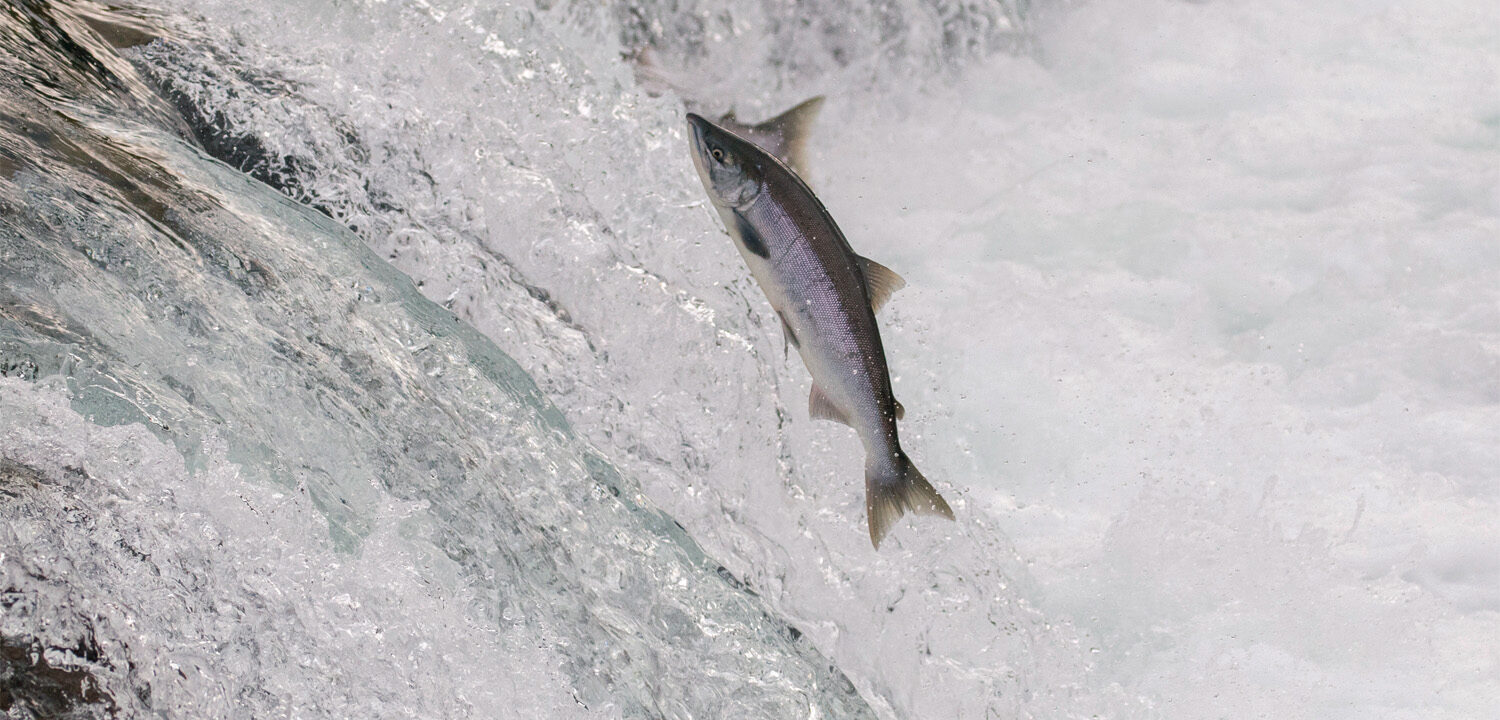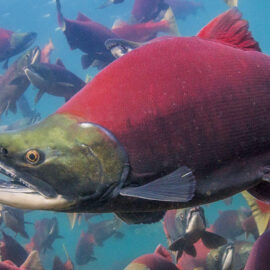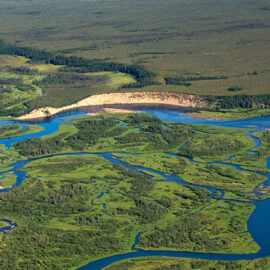The agency says the mine will cause significant degradation to Bristol Bay salmon fishery, and Pebble must take more action to offset impacts.
Today, the U.S. Army Corps delayed the Pebble Mine project slated for the headwaters of Bristol Bay, Alaska.
The agency said the mine’s application for federal approval was deficient and could not be permitted without a better plan to compensate for the loss and destruction of thousands of acres of wetlands and 184 miles of salmon streams. Pebble Limited Partnership has 90 days to come up with a new plan.
Nothing Pebble does will offset the sheer magnitude of damage this mine will cause to Bristol Bay’s fishery.”
“The Army Corps is right to delay the project and express doubts about the company’s ability to mine while protecting salmon,” says Guido Rahr, CEO of the Wild Salmon Center. “Nothing Pebble does will offset the sheer magnitude of damage this mine will cause to Bristol Bay’s rivers, which support the most productive salmon fishery on Earth. The logical next step is for the Administration to use its authority under the Clean Water Act to veto the project.”
The Army Corps decision comes after other federal agencies, Alaska Native tribal leaders, and scientific experts have roundly criticized Pebble’s mine plan in recent months.
Millions of Americans and Alaskans have spoken up against Pebble Mine.
And the opposition has been growing stronger in recent weeks. After Pebble released its Final Environmental Impact Statement on July 24, a steady stream of prominent figures from across the political spectrum, including many people close to President Trump, have suggested the mine cannot be built to safely protect salmon.
Today, both of Alaska’s Senators also came out to say that they agreed with the Army Corps’ decision to delay Pebble’s permit.
A recent poll found more than 60 percent of Alaskans oppose the mine. Meanwhile, Bristol Bay’s salmon runs surpassed 60 million fish this summer.
“This is a very important step by the Army Corps and it shows that there’s very little support anywhere for this mine,” Rahr said. “Wild Salmon Center friends and supporters have been phenomenally helpful in getting us to this milestone. And we remain committed as ever to standing with the people of Bristol Bay and making sure this mine is killed once and for all. We will continue to work towards that goal.”
See press coverage of this decision at The Wall Street Journal, the Washington Post, and NPR.



